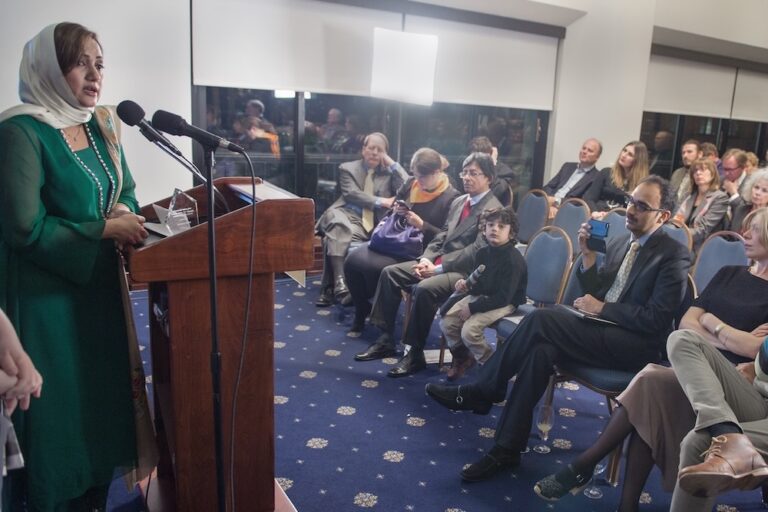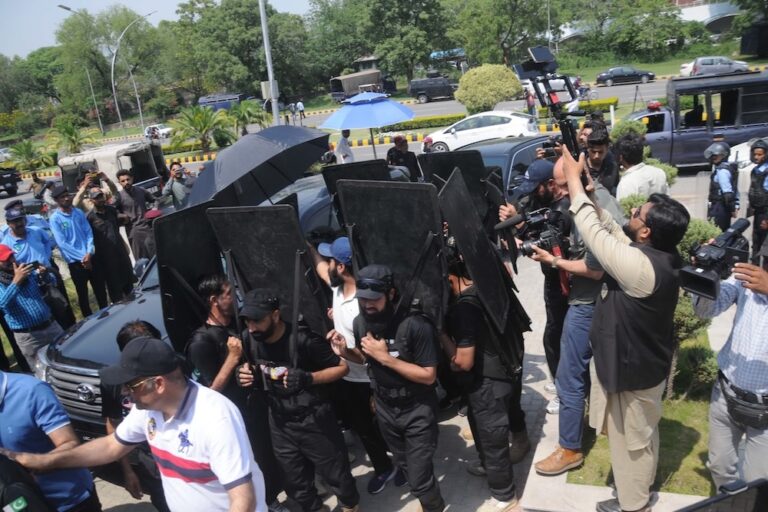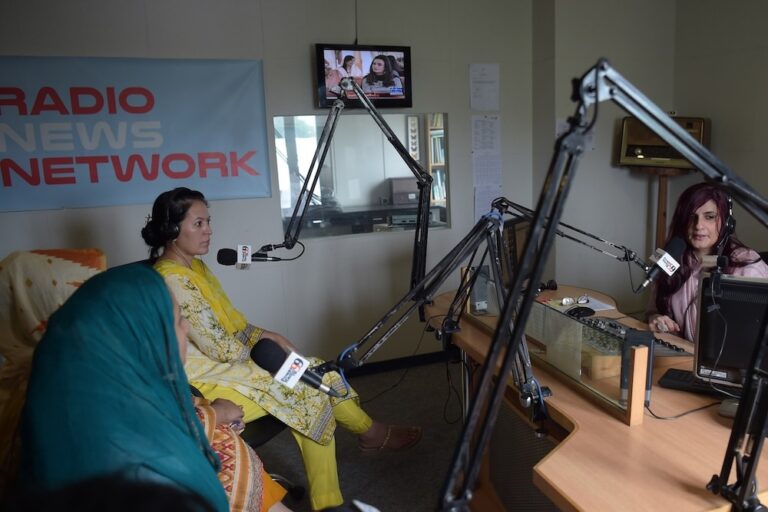PFUJ and IFJ deployed four missions to assess the situation on the ground in some of the most dangerous and under-reported provinces in the country - Balochistan, Interior Sindh, the Khyber-FATA region and Punjab.
(IFJ/IFEX) – May 3, 2012 – Pakistan is ranked as the most dangerous country in which to work as a journalist.
The Pakistan Federal Union of Journalists (PFUJ), in partnership with the International Federation of Journalists (IFJ), recently deployed four missions to assess the situation on the ground in some of the most dangerous and under-reported provinces for journalists in the country – Balochistan, Interior Sindh, the Khyber – FATA region and Punjab.
The missions found that problems for journalists and media personnel working in Pakistan’s conflict zones are multiple and complex.
Independent Pakistani media see themselves as playing a key role in the reporting of the ongoing civil unrest in Pakistan ensuring an independent, ethical and critical media that provides full, fair and impartial information. In doing so, they have become targets. With key journalists gagged, others beaten and arrested, independent broadcasters banned from the airwaves, and censorship under the guise of a new “code of conduct,” press freedom is under attack.
In conflict-ridden provinces such as Balochistan and the Federally Administered Tribal Areas (FATA), media personnel sandwiched between insurgent elements and government security forces find it virtually impossible to conduct their work freely. In Khyber Pakhtunkhwa and the tribal areas, the safety situation is just as precarious for media, as Taliban and other groups pressure the Government by launching attacks in public places, pro-government gatherings, mosques and religious seminaries.
While safety and security remain priority concerns, journalists in Pakistan also confront enormous difficulties due to lack of decent wages and job security, mass retrenchments and poor workplace environments. These compound the pressures of journalists working on the front line.
Journalists’ unions in Pakistan continue to struggle for implementation of minimum wage under the Seventh Wage Board Award. Journalists are commonly employed under insecure short term contracts which are not accountable to the Wage Board and salaries are held for months at a time causing great distress to working journalists and their families.
The PFUJ will launch the four reports The State of Journalism in Pakistan, at their headquarters in Islamabad on May 3 to mark World Press Freedom Day.


